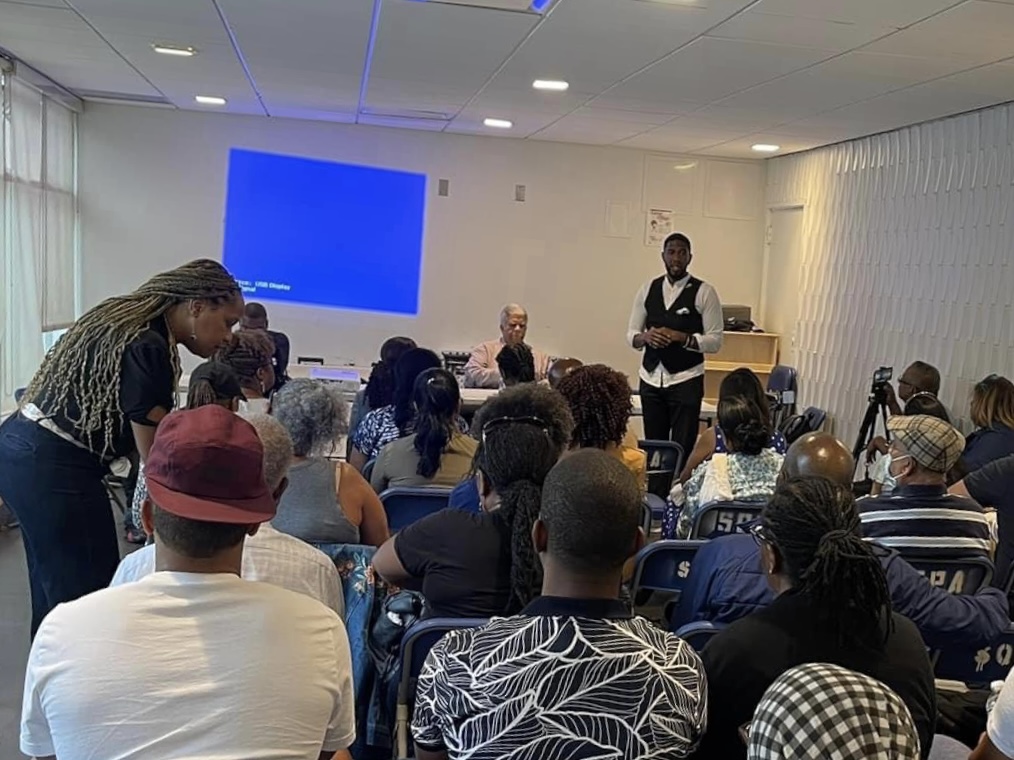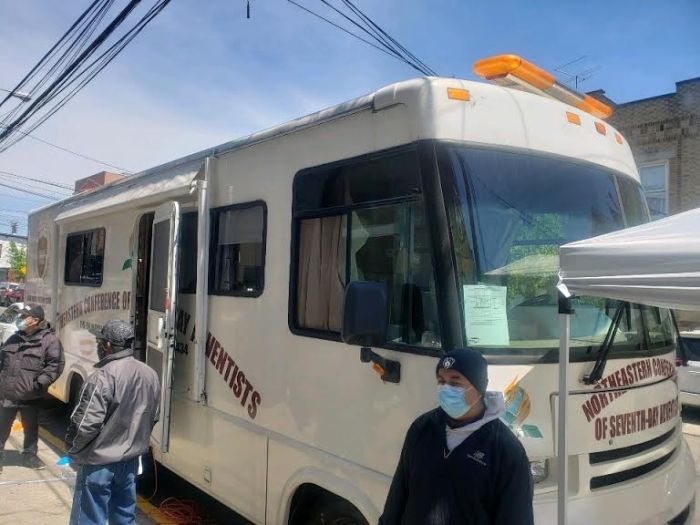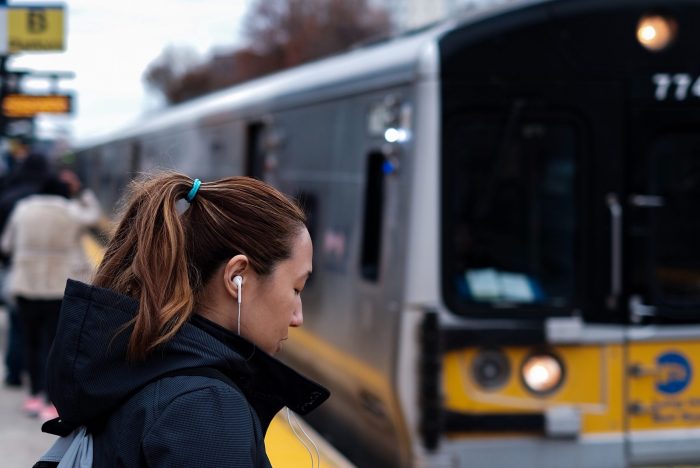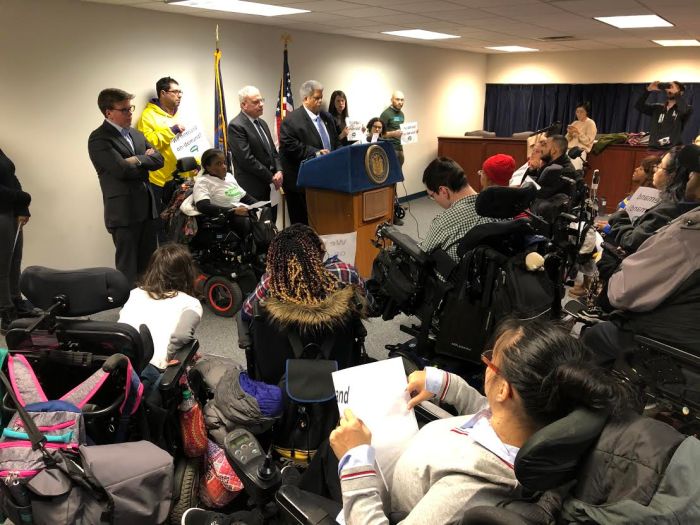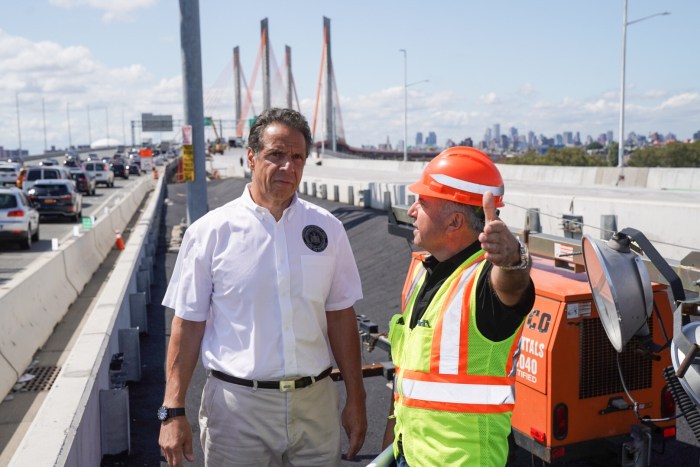New York City Public Advocate Jumaane Williams hosted an open forum with residents of southeast Queens on Thursday, June 15, to hear their concerns about Gov. Kathy Hochul’s proposed New York Housing Compact, a plan that would create 800,000 new homes in New York over the next decade to address homelessness, lack of affordability and an overall housing shortage throughout the state.
Hosted at the Roy Wilkins Recreation Center on Baisley Boulevard, the meeting also included local southeast Queens representatives, who stalled the 6 p.m. meeting until 45 minutes after when Williams finally arrived. Williams, who has held the public advocate position since 2019, said it was important for him to visit the community, referring to the housing crisis’ effect on Black and Brown families.
“This is not about trying to sell anything to anybody,” Williams said in opening remarks. “It’s really just trying to have a conversation about what’s going on … It was really done pretty poorly when stuff was put out without having conversation and it was important to me to reach out to your representatives.”
After gauging residents’ understanding of the New York Housing Compact, Williams explained the plan further to residents, mentioning that it would require downstate New York communities to expand housing by 3% annually. If this benchmark is not met, the state could then override local zoning and “facilitate the building” of new housing units.
Among the concerns brought up residents included the existence of empty apartments and vacant houses, or “zombie homes,” in southeast Queens. The residents questioned why those properties were not considered for housing over building more homes in the neighborhood.
District 14 state Senator Leroy Comrie responded by telling the residents that all legislative efforts to address these vacancies receive push back from the banks and fail to pass. Still, Comrie maintained that developing housing in the area is not something that the community can ignore nor depend on other neighborhoods or facilities to address.
“We do need to develop a housing plan for this area,” Comrie said. “They’re going to try to take away your right as a community and usurp the zoning laws. There does need to be a serious conversation about what could be developed, what areas we could add more density to, what areas we can’t.”
Comrie added that it’s even more critical for southeast Queens to get in front of this issue because both of the state’s housing chairs and most of the staff don’t own houses and therefore lack the “practical experience” necessary to develop housing policies.
Williams agreed with Comrie, adding that when it comes to developing a housing plan, “preservation” needs to be on the forefront and housing needs to be affordable for people to be able to stay in New York City instead of motivated by profitable “land grabs” for developers.
“I think housing is a human right for everyone,” Williams said. “The way it’s been developed in the past four years is more focused on how much money people can make as opposed to providing housing … and it’s led us here.”
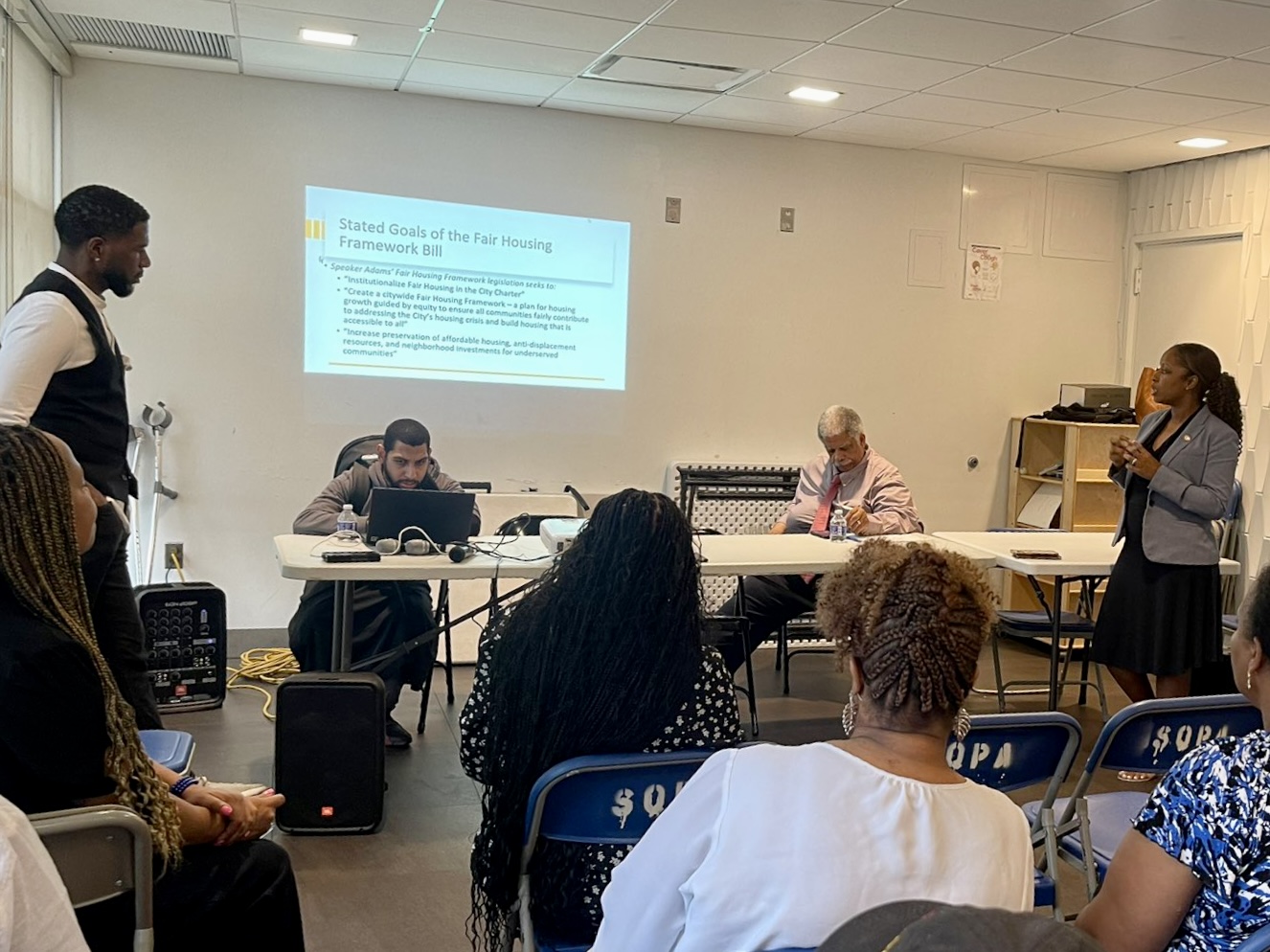
NYC Council Majority Whip Selvena N. Brooks-Powers also joined the conversation, presenting the attendees with NYC Council Speaker Adrienne E. Adams’ “Fair Housing Framework.” If passed, the legislation would create a new city charter requiring the NYC Departments of Housing Preservation and Development and City Planning to compose a citywide fair housing plan every five years with the first plan in January 2025 and public hearings required in each borough to address equity and disparities in certain communities.
Still, Brooks-Powers acknowledged how challenging it can be to balance new housing developments and sustaining the existing community, referencing her experience with development in Far Rockaway.
“We have a lot of housing right now in Rockaway available,” Brooks-Powers said. “That’s the gift, but the curse is what does that mean to the community in terms of that instant growth, that instant density.”
Brooks-Powers added that despite challenges, it can work and even benefit the community long-term, pointing to Far Rockaway’s Arverne By The Sea housing development, which now enjoys a nearby YMCA, supermarket and shopping corridor.
District 27 Councilwoman Nantasha Williams reiterated this point, telling residents that it’s not just about developing housing, but developing the community as a whole.
“The city has said that they want to invest in our communities, not just build housing,” Williams said. “The speaker’s bill allows for this type of approach.”
After the presentation from Brooks-Powers, John Francis, the deputy public advocate for housing equity, presented other approaches, including the Tenant Opportunity to Purchase Act, a state bill that creates a pathway for home ownership, as well as community land trusts that would use high-income buildings to subsidize low-income buildings.
According to Francis, if southeast Queens residents were to form a community land trust, they could then seek financing from private entities or a public bank who would provide the money needed to purchase vacant properties and build them up to their liking.
“You can decide how tall, wide, long it’s going to be, you can decide the income levels of the certain groups of people that are going to be coming into these types of communities,” Francis said. “The point of us bringing this to you is to not burden you [with] another housing plan that’s going to promise you more equity, but also to put the power in your hands to shape the community as you see fit.”
While some residents remained unconvinced, others expressed an interest in keeping the discussion going throughout the summer, something Comrie says is paramount to ensure the best possible outcome for the communities of Southeast Queens. The public advocate also agreed to come back for further housing workshops and discussions.
“We don’t have a choice,” Comrie said. “If we don’t do it, it’s going to get done to us.”

